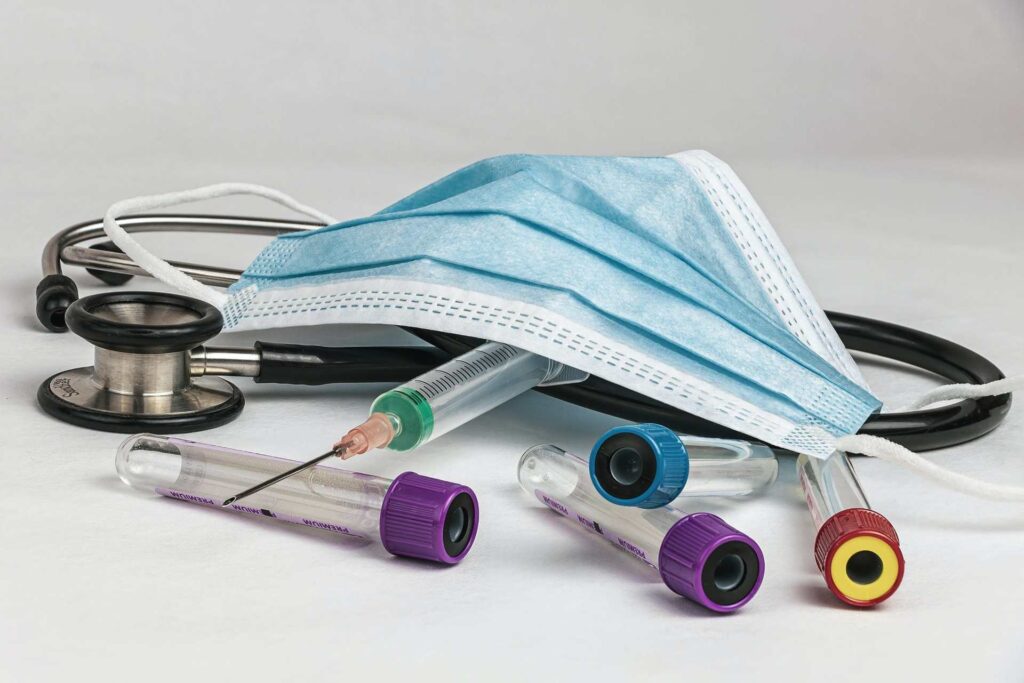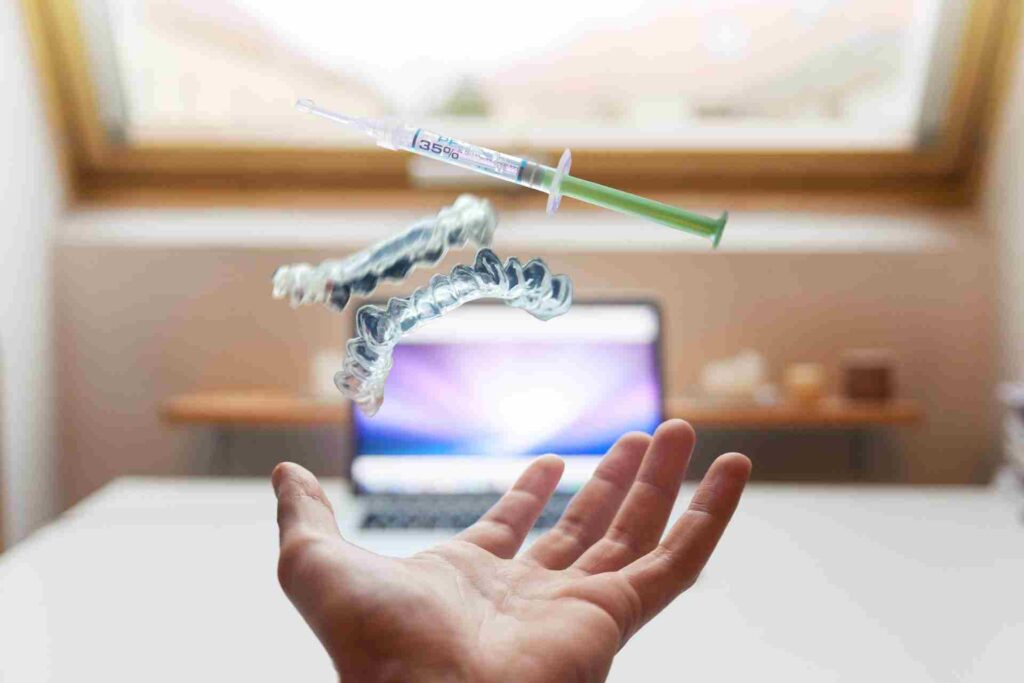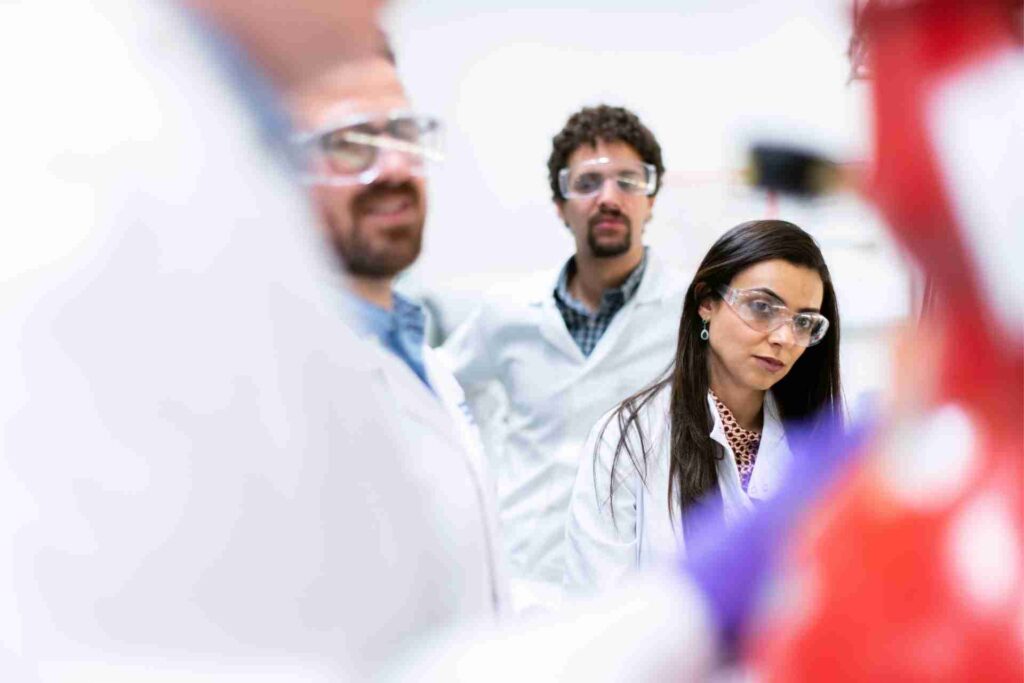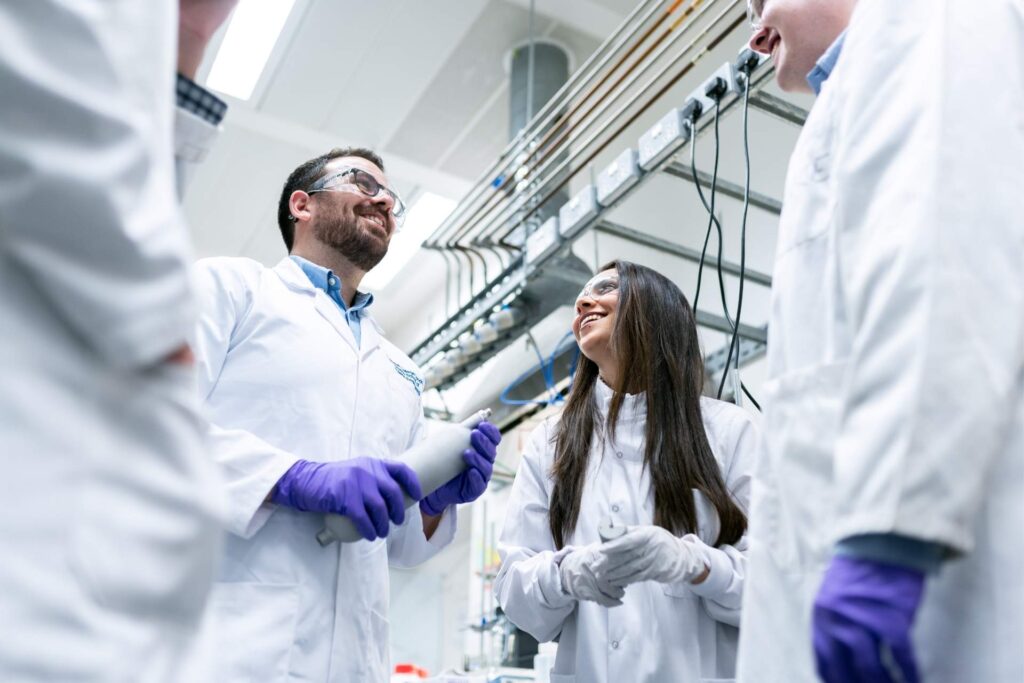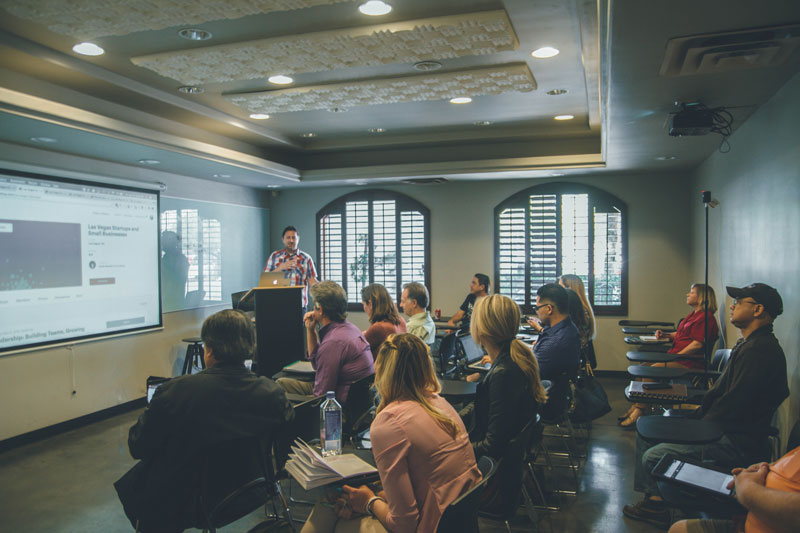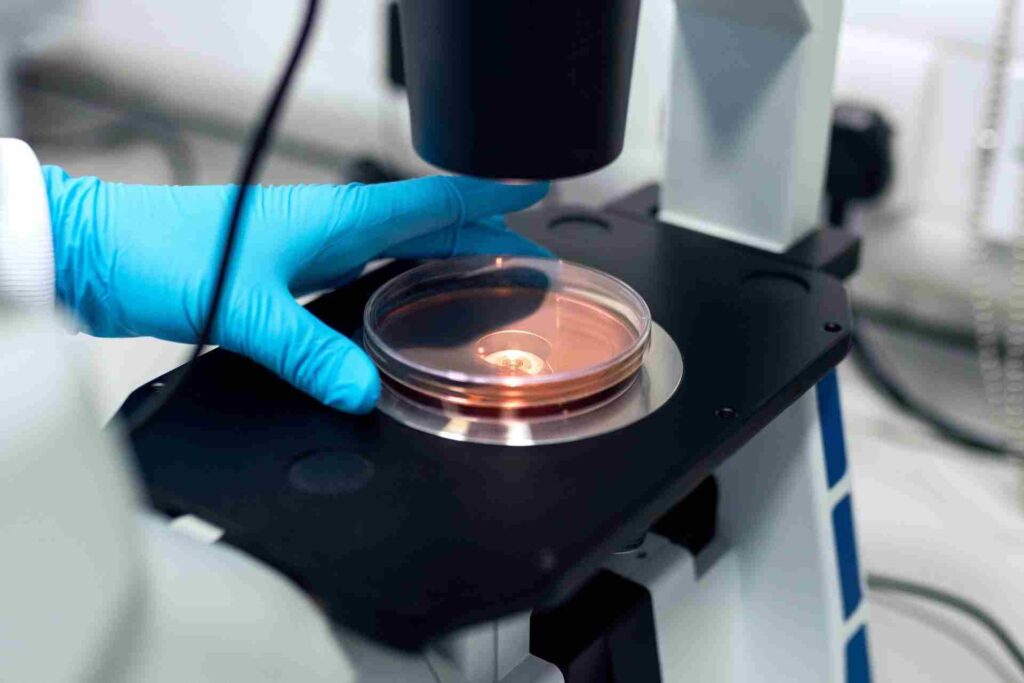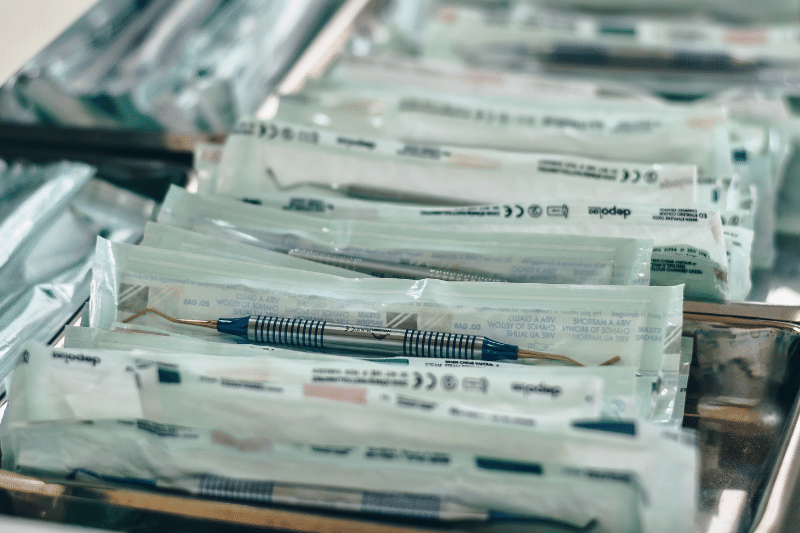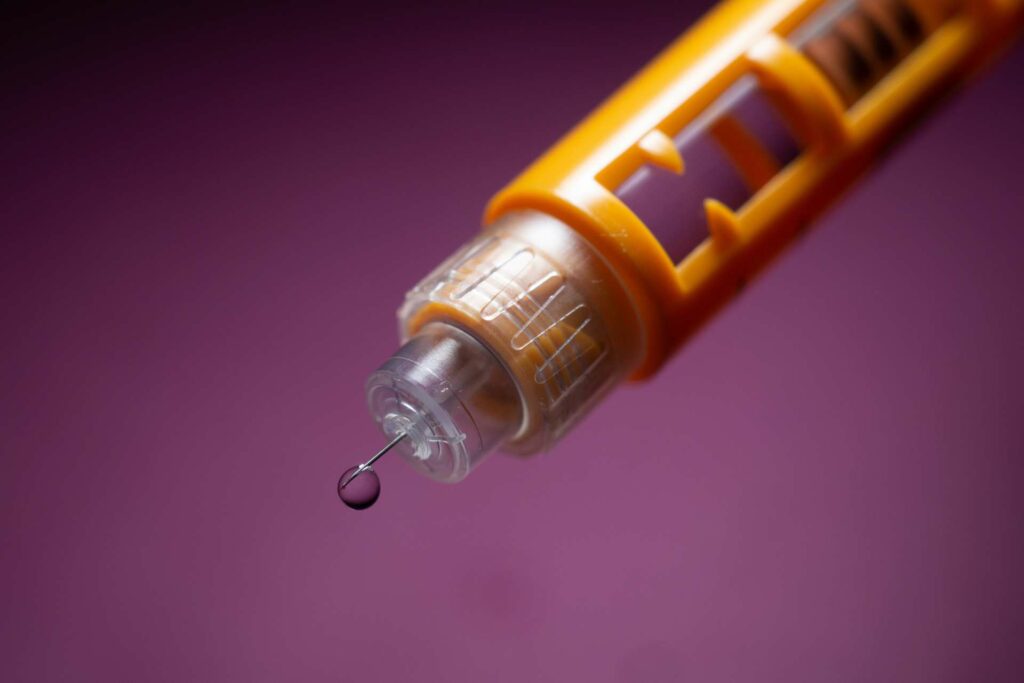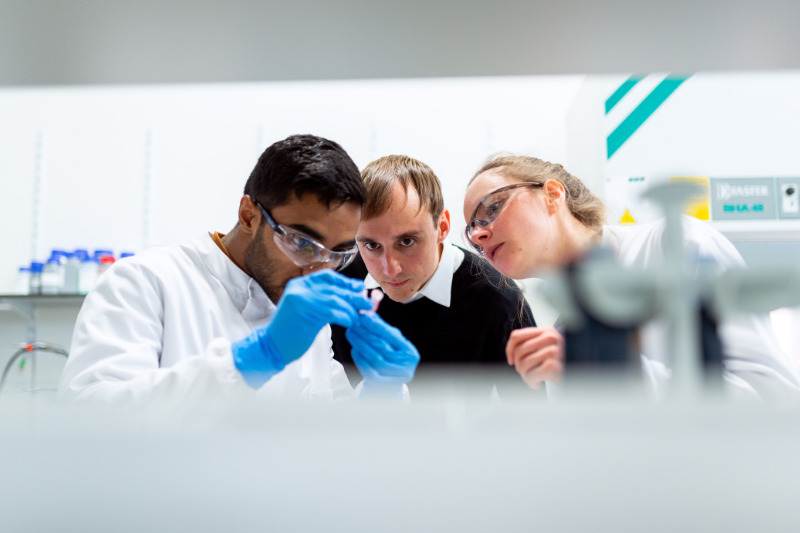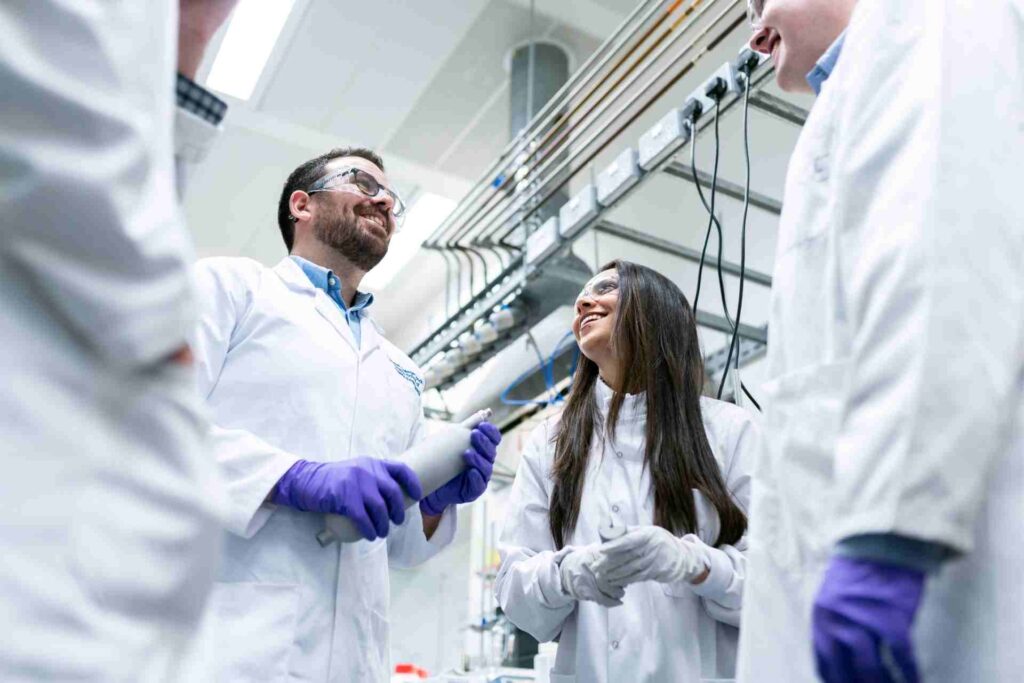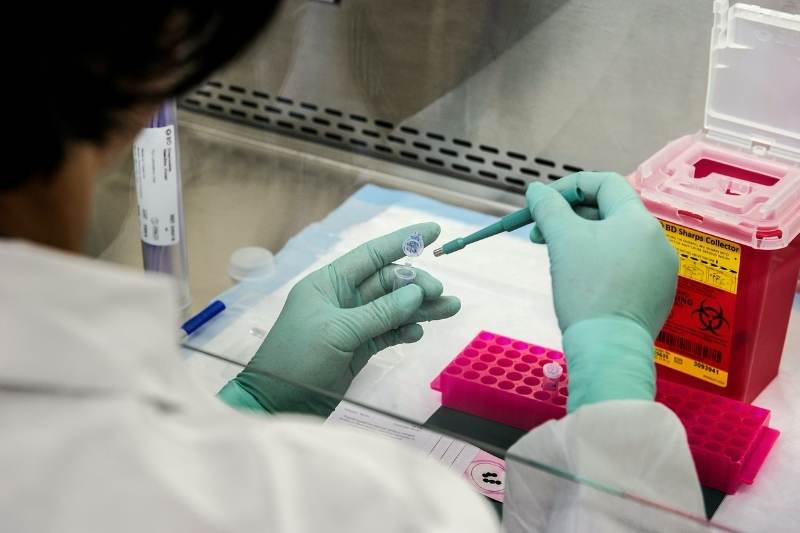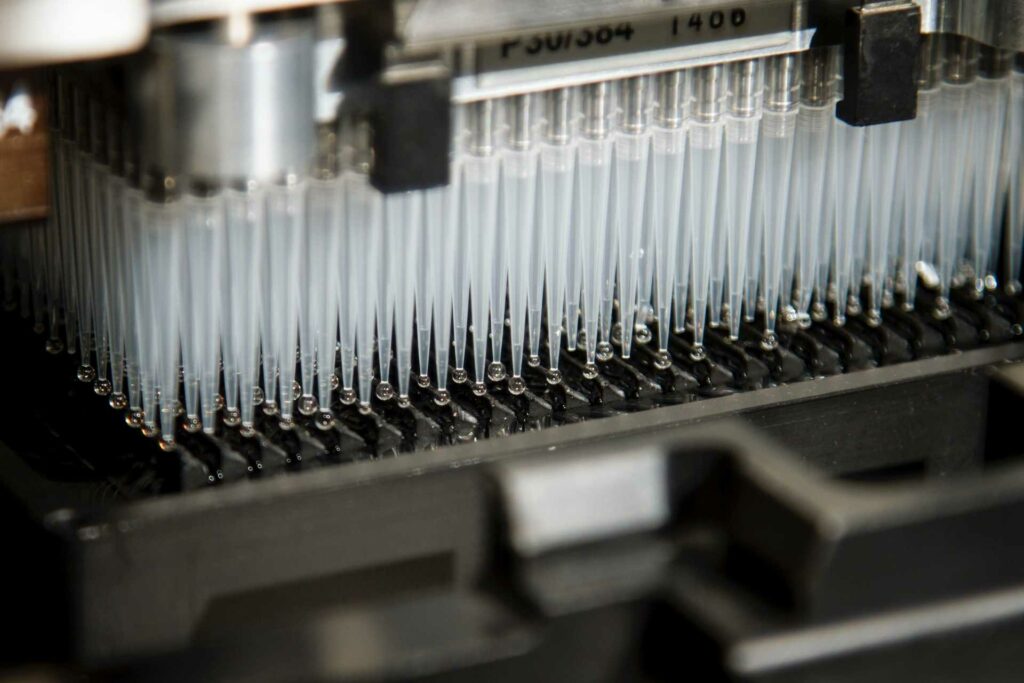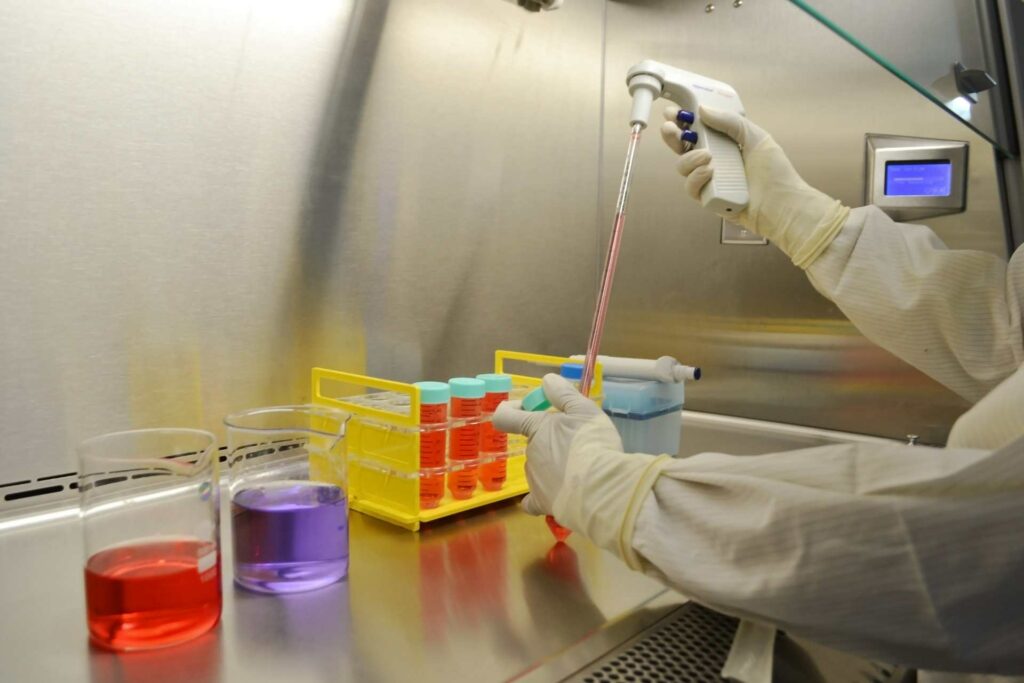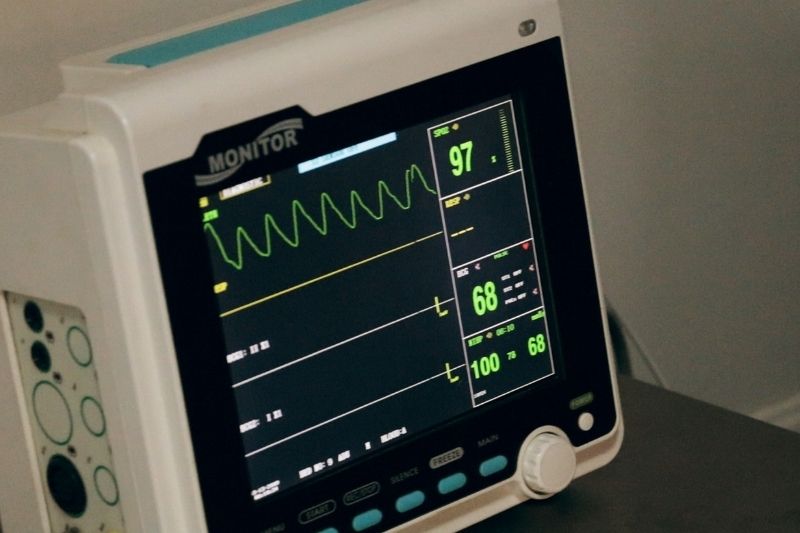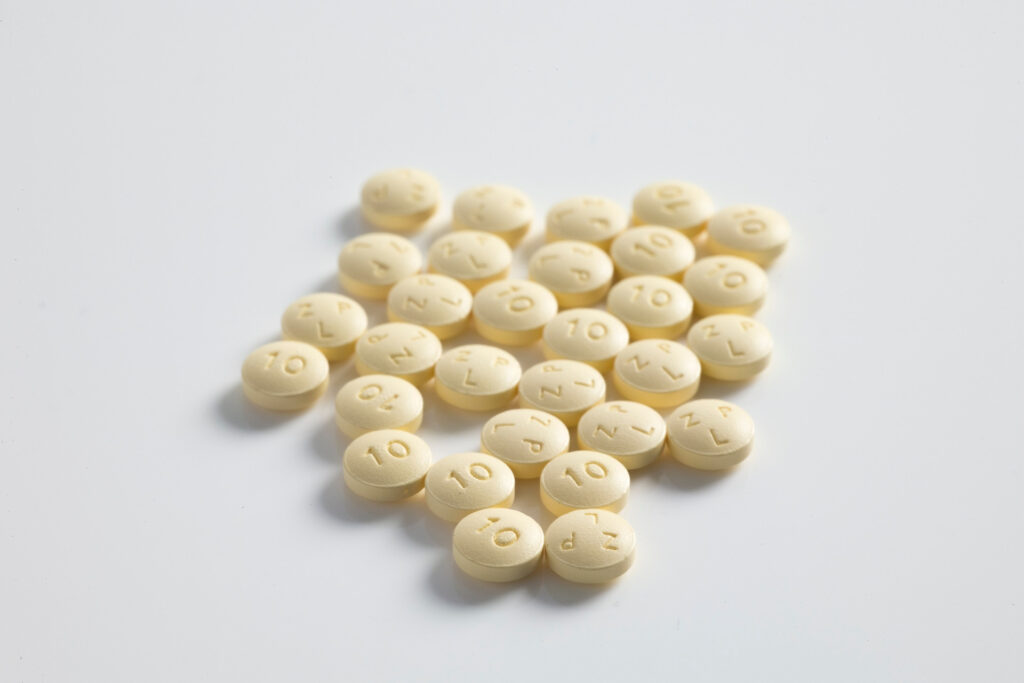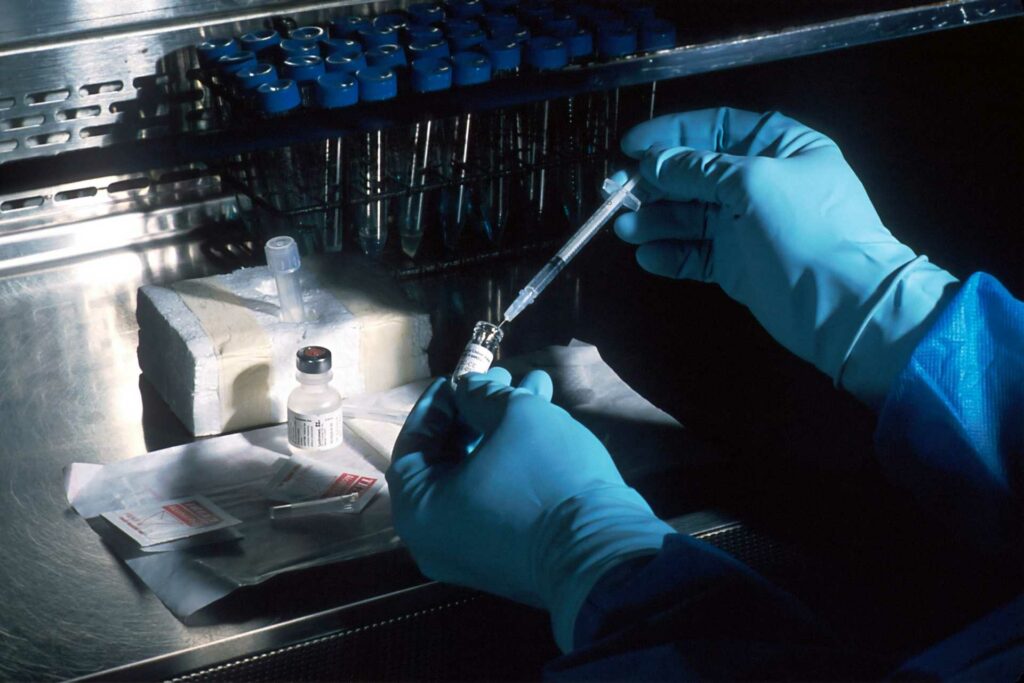Welcome to the Educo Life Sciences Resource Hub which contains a wealth of free resources designed to elevate your career in pharmaceuticals, biotech or medical devices. Delve into our exclusive free trainer interviews, thought-provoking articles, and much more below. Use the tab filter below to pinpoint the perfect free resources tailored to your specific interests.
-
All
-
Medical Device & IVD
-
Biopharma and Cell & Gene Therapy
-
Pharmaceutical & Regulatory
-
Learning and Development
Biopharmaceutical or ATMP Free Module 1 Training Sessions
Free Module 1 Training for Biotech and Cell & Gene Therapy Professionals
Many of our biopharmaceutical training courses offer a free-to-attend Module 1, giving you valuable insights and a preview of the full course experience. Browse the available courses below and register using the form provided. Once registered, you'll receive joining instructions for the live session –...
Pharmaceutical Regulatory Affairs Free Module 1 Training Sessions
Free Module 1 Training for Regulatory Affairs Professionals
Many of our regulatory affairs training courses offer a free-to-attend Module 1, giving you valuable insights and a preview of the full course experience. Browse the available courses below and register using the form provided. Once registered, you'll receive joining instructions for the live session...
Pharmaceutical Free Module 1 Training Sessions
Free Module 1 Training for Pharmaceutical Professionals
Many of our pharmaceutical training courses offer a free-to-attend Module 1, giving you valuable insights and a preview of the full course experience. Browse the available courses below and register using the form provided. Once registered, you'll receive joining instructions for the live session –...
Medical Devices & IVDs Free Module 1 Training Sessions
Free Module 1 Training for Medical Device & IVD Professionals
Many of our medical device and IVD training courses offer a free-to-attend Module 1, giving you valuable insights and a preview of the full course experience. Browse the available courses below and register using the form provided. Once registered, you'll receive joining instructions for the...
Breaking into Biotech R&D: Insights on Drug Development, AI & ATMPs
Expert Advice from Educo Trainer Gareth Willis
What does it take to thrive in the ever-evolving world of pharmaceutical R&D? Gareth — a biotech leader, educator, and former translational researcher — has built a unique career across academia, big pharma, and early-stage biotech. In this exclusive interview, he shares how he made...
From Compliance to Confidence: Building Analytical Methods That Perform in the Real World
A lifecycle approach to method validation that ensures reliability, robustness, and real-world performance.
In regulated pharmaceutical environments, method validation is a cornerstone of quality assurance. Yet many validated methods still fail to perform reliably in routine use. This disconnection between regulatory compliance and real-world functionality is all too common. The good news? With a more pragmatic and risk-based...
Cell Bank Lifecycle Management: GMP Best Practices from RCB to End-of-Production
A Complete Guide to Establishing, Testing, and Maintaining Cell Banks for Biologics and Cell & Gene Therapies
The establishment and management of a comprehensive cell bank system is central to biologics and cell and gene therapy manufacturing. Yet, navigating the requirements, best practices, and regulatory expectations from research through to end-of-production can be complex. In this article, we provide an in-depth look...
Optimising Potency Assays with Design of Experiments (DoE): A Practical Guide for Biologics
Real-world examples of DoE in ADCC, vaccine, and nanobody potency assays.
In the complex and regulated world of biologics, potency assays are among the most critical tools used to ensure the quality, efficacy, and consistency of therapeutic products. Whether it’s for release testing, stability studies, or development milestones, a robust potency assay is essential. Yet, developing...
Essential Guide to Clinical Evidence for Medical Devices in the EU
Explore Key Standards and Guidance Documents
Introduction: The Role of Clinical Evidence in Medical Device Compliance In the European Union, gathering clinical evidence for medical devices is essential to regulatory compliance, particularly under the Medical Device Regulation (MDR). Clinical evidence helps demonstrate that a device is safe, performs as intended, and…
From 510(k) to PMA: Choosing the Right FDA Submission Pathway for Your Medical Device
Your step-by-step guide to the FDA’s 510(k), De Novo, and PMA submission routes.
Navigating the U.S. Food and Drug Administration (FDA) regulatory process can be one of the most challenging steps for medical device manufacturers aiming to enter the American market. Unlike the European system, where the CE marking process is guided by Notified Bodies under the Medical...
The EU AI Act and Medical Devices: What MedTech Companies Must Do Before August 2026
Understanding high-risk AI classification, data governance requirements and lifecycle compliance for AI-enabled medical devices in Europe.
Artificial intelligence is no longer a future-facing concept in medical technology — it is already embedded in diagnostic imaging, clinical decision support, digital pathology, wearable monitoring systems and predictive modelling tools. However, as AI capability has accelerated, so too has regulatory scrutiny. The introduction of...
What is UDI (Unique Device Identification)?
Learn More About UDI Labelling for Medical Devices
The Unique Device Identification (UDI) system is a globally recognised framework designed to provide a unique identifier for medical devices, enhancing traceability and safety within healthcare. It has become a cornerstone of regulatory efforts in both the United States and Europe, ensuring that medical devices,…
Educo Life Sciences Training Report 2025: Motivations and Challenges Uncovered
Discover Data-Driven Training Trends of Professionals in the (Bio)pharmaceutical, ATMP & Medical Device Industries.
As the pharmaceutical, biopharmaceutical, and medical device industries continue to evolve at a rapid pace, the need for continuous professional development has never been greater. In this article, we explore the findings of the Educo Life Sciences Training Report 2025, which analyses training motivations across...
Educo Life Sciences Training Report 2026: What Has Changed Since Last Year?
Discover Data-Driven Training Trends of Professionals in the (Bio)pharmaceutical, ATMP & Medical Device Industries.
The life sciences sector continues to operate in an environment defined by regulatory pressure, technical complexity, and rapid change. For professionals working across pharmaceuticals, biopharmaceuticals, ATMPs, and medical devices, training is no longer optional—it is a critical enabler of performance, compliance, and confidence. In last...
Best Practice for Knowledge Management in Life Sciences
What is it? Why is it important? How to implement it
Overview Knowledge management is one of your organisation’s most valuable assets and is integral to your organisational culture. This is particularly important for pharmaceutical, biotech and medical device companies where knowledge is the foundation for success. All R&D, manufacturing, engineering, clinical and regulatory work is…
Delivering Effective Training to Your Staff: Making the Most of Your Budget
For leaders in the pharmaceutical, biotech and medical device industries
Training has always been essential for equipping staff with the skills needed to stay competitive. In recent years, however, it has become even more critical as today’s workforce increasingly values development opportunities. As we approach the end of the year, it’s important to maximise your...
Reasons to Consider a Customised Training Solution
For the Pharmaceutical, biotech and medical device industry
For those organisations and teams who have mapped out their direction and objectives over the coming years, there is often a disconnect between the destination and the knowledge available to them within the organisation. Resourcing for this gap will always be a balance between recruiting…
What Your Team Really Wants When you Organise Training
3 things to consider when creating training for your pharmaceutical, biotech or medical device team
The concept of team training or corporate training is simple. Its aim is to improve the skills of individuals within a team, which in turn will improve their overall knowledge and skill in a specific area. Consequently, the team will perform with greater competence and…
10 Tips for Turning Your Training Online
Advice for team leaders in the pharmaceutical, biotech and medical device industries
The COVID-19 pandemic has fundamentally changed the way we work. This was no exception to the pharmaceutical, biopharma and medical device industries. The workforce shifted away from the office to improvised desks on the kitchen worktop, dining room table or maybe even on the garden…
5 Reasons to Have a Learning and Development Strategy for Your Team
Advice for leaders in the pharmaceutical, biotech and medical device industries
Throughout my experience supporting the pharmaceutical, biotech, and medical device industries with training, I have encountered a wide range of learning and development (L&D) strategies. These range from complex and highly effective plans to minimal and often ineffective ones. Despite being knowledge-intensive industries, heavily reliant…
Why are Career Pathways Important and How to Create Them
In the pharmaceutical, biotech and medical device industries
To retain your top employees, you must make sure they have clear career paths set out. A career pathway provides an individual with a structured progression roadmap. But why? If done correctly, your employees will have a clear understanding of where they stand within an…
Three Tips to Maximise Your Team’s Development in 2025
Advice for team leaders in the pharmaceutical, biotech and medical device industries
As a leader, it is your responsibility to ensure your team is in the best possible position to hit their objectives and thus help you achieve yours. Ensuring an effective training strategy will help you achieve these goals. Research has repeatedly shown that organisations with…
Benefits of Live Online Training
In the pharmaceutical, biotech and medical device industries
Training plays a major role in the development of individuals and teams in the pharmaceutical, biotech and medical device sectors. Professionals must continually update and develop their skills to stay on top of an ever-evolving sector where techniques and regulations change. One training approach is…
Creating a Successful Learning and Development Strategy for Your Team
A 7-point plan for leaders in the pharmaceutical, biotech and medical device industries
Planning and implementing an effective learning and development (L&D) strategy for your team or organisation is crucial for several reasons. Firstly, it enhances your team’s capabilities in alignment with overall business goals. Secondly, it plays a vital role in attracting and retaining talent, especially as…
Important Considerations When Developing Your Team
For Leaders in the Pharmaceutical, Biotech and Medical Device Industries
Is your team merely functioning, or are you proactively developing their skills and knowledge to help them excel? The life sciences industry is a rapidly evolving and highly competitive field. To stay ahead of the competition, meet deadlines, and ensure successful project outcomes, teams and…
Cell and Gene Industry | How Has it Changed and Future Trends
Watch Educo Life Science Trainer Olivier Negre discuss the Cell and Gene Landscape and Trends
Listen to Educo Life Sciences’ trainer Olivier Negre discuss how the cell & gene therapy sector has changed over the past 10 years and how he expects it to change in the next 10 years. Olivier also discusses the latest increase in gene editing…
Comprehensive Guide to Chemical Characterisation and Biocompatibility in Medical Devices
Understand Chemical Characterisation to Ensure a Safe and Compliant Medical Device
In the medical device industry, ensuring safety and compliance with regulatory standards is paramount. Chemical characterisation and biocompatibility testing are essential steps in this process, guided by frameworks such as ISO 10993. These evaluations help manufacturers understand the materials in their devices and assess potential…
A Guide to Data Sources and Literature Review During ISO 10993 Biological Evaluation
Watch Educo Life Science Trainer Rona Middlemiss
We interviewed Educo Life Sciences trainer Rona Middlemiss to discuss Biological Evaluation literature review and data sources. This area is critical as it is a requirement of all medical device categories as per ISO 10993. It aims are to assess the risk and benefits of…
Understanding ISO 10993: Navigating Biological Safety for Medical Devices
Explore the Standards Aims and Challenges
ISO 10993 is the cornerstone standard for assessing the biological safety of medical devices. By focusing on risk assessment rather than prescriptive testing, it provides a flexible framework for evaluating device materials in their final form. This guide delves into the scope, challenges, updates, and…
How to Complete CTD Module 3: CMC Regulatory Q&A for Pharma & Biotech
Q&A’s from the Free Module 1 Training Sessions
The Chemistry, Manufacturing, and Controls (CMC) section of a regulatory dossier is critical in ensuring product quality and regulatory compliance. Educo delivers the course “Completing the Quality/CMC Module of the CTD” which includes a free-to-attend module 1 training session. Over the years, attendees of the...
Regulatory Affairs for Combination Products: Comprehensive Q&A
Q&A’s from the Free Module 1 Training Sessions
Combination products pose regulatory difficulties as the requirements of medical devices must merge with pharmaceuticals and biotech. As biotech and advanced therapeutics grows, so too does the need for specialised device delivery systems resulting in an increase in combination products. Similarly, device companies are increasingly...
Challenges and Strategies in Regulatory Lifecycle Management
Focus on CMC Changes and A Global Perspective
Regulatory lifecycle management is an essential aspect of maintaining product compliance, particularly when dealing with Chemistry, Manufacturing, and Controls (CMC) changes. However, managing these changes on a global scale introduces unique challenges due to differing regulations across countries. In this article, we explore the key…
Navigating EU Marketing Authorisation: Key Routes and Procedures Explained
Centralised vs Decentralised vs Mutual Recognition Procedures
Marketing authorisation is a critical step for any medicinal product entering the European market. Unlike the US, where the Food and Drug Administration (FDA) handles approvals, Europe offers several complex regulatory pathways. This article explores the various marketing authorisation routes available in the European Economic…
Understanding the Common Technical Document (CTD)
A Comprehensive Guide of the ICH CTD for Pharmaceutical Professionals
The Common Technical Document (CTD) is an essential component in pharmaceutical regulatory affairs. It streamlines the submission process across various regions and ensures that drug applications are evaluated efficiently. For professionals working within the pharmaceutical, biopharmaceutical, and regulatory sectors, understanding the structure and functionality of…
Understanding ISO 13485: A Guide for Medical Device Professionals
Learn more about ISO 13485 and how to successfully implement it
ISO 13485 is a critical standard for companies involved in the design, development, and production of medical devices. It provides a framework for implementing a quality management system (QMS) specifically tailored for the unique regulatory requirements of this sector. In this article, we will delve…
Pharmaceutical CMC: Career Advice When Working in Chemistry, Manufacturing and Controls
Interview with Educo Life Sciences expert Raz Eliav
CMC, Chemistry, Manufacturing and Controls (CMC) refers to all the elements involved in producing pharmaceutical, biologic, or cell & gene products. CMC activities commence from product development and progress through pre-clinical, clinical, and eventual marketing. Various skilled professionals work in CMC to develop and manufacture…
Navigating the Regulatory Landscape for Combination Products in Pharmaceuticals and Medical Devices
Unlock the complexities of combination product development
Combination products, which integrate pharmaceutical and medical device components, are an innovative and expanding sector in medical solutions. This article, based on insights from expert Richard Young, covers the unique regulatory challenges faced by manufacturers and developers working with these products, especially in Europe and…
Medical Device Design & Development – Challenges When Transitioning Legacy Products
Interview with Educo Life Sciences expert Richard Young
Educo Life Sciences recently caught up with Richard Young to discuss legacy products and some of the most challenging aspects when transitioning them to comply with the new medical device regulations. The new European Medical Device Regulations means that legacy products need to meet new…
Understanding CMC Development
A Guide to Chemistry, Manufacturing, and Controls in Drug Development
Chemistry, Manufacturing, and Controls (CMC) form a critical component of pharmaceutical drug development. This article delves into the complexities of CMC, discussing its role, processes, and regulatory aspects. This knowledge is essential for professionals involved in drug development, especially in navigating the intricacies of bringing…
Navigating CMC Challenges for Biotech Startups
Discover Practical Solutions for Success
Biotech startups face numerous hurdles in Chemistry, Manufacturing, and Controls (CMC) development. From regulatory requirements to balancing costs and timelines, managing these complex processes is crucial for survival in the highly competitive pharmaceutical industry. In this article, we explore key CMC challenges biotech startups face…
Key Strategies for Successful Implementation of Continuous Biomanufacturing
Discover how to reduce costs, speed up timelines, and ensure product quality
Continuous biomanufacturing has rapidly become a vital strategy for pharmaceutical and biotech companies, offering substantial benefits such as cost reduction, faster production timelines, and enhanced process efficiency. Initially introduced in the 1980s, the technology has significantly evolved, now being applied to both upstream and downstream…
Mastering Tech Transfer in Biopharmaceuticals
Discover Best Practices, Challenges, and Key Considerations
Technology transfer (tech transfer) in biopharmaceuticals is a critical process involving the transition of production methods and materials from research and development (R&D) to manufacturing facilities. It ensures that the quality and efficacy of the product are maintained throughout its life cycle, from clinical trials…
Bioanalytics In The Development of Cell and Gene Therapies
What are the major challenges compared to biotech?
A greater number of cell and gene therapies are entering development, often with innovative modalities. One of the biggest challenges is within bioanalytics when understanding biodistribution and pharmacokinetics of cell and gene therapies. As discussed below, a new way of thinking is often required to…
Navigating a Career in CMC Analytics for Cell and Gene Therapies
Expert Insight from Educo Life Sciences Trainer Nadine Ritter
A greater number of cell and gene therapies are entering development, often with innovative modalities. One of the biggest challenges during CMC development is analytics. Analytics of biologics are complex enough, but with cell and gene therapies a new range of analytical issues arise. We...
Can We Develop Products as Fast as the COVID Vaccines?
An Interview with Educo Life Sciences Trainer Nadine Ritter
We interviewed Educo Life Sciences trainer Nadine Ritter to find out why drugs cannot be developed as quick as the COVID vaccine. Nadine explains all the factors that led to the fastest development of a drug in history. Why Can’t We Develop Products as…
Why Host Cell Protein and Potency Assays Remain the Biggest Challenges in Biologics
Expert insights from Dr Nadine Ritter on why these assays require more than just technical skill
In the fast-paced world of biologics development, analytical assays play a pivotal role in ensuring product safety, efficacy, and regulatory compliance. Yet, despite technological advances, some assays continue to pose significant challenges across the product lifecycle. In a recent conversation with Dr Nadine Ritter, a...
How Will The IVDR Impact You?
Interview with Educo Life Sciences trainer Richard Young
The In-Vitro Diagnostic Regulation (IVDR) was introduced by the EU to replace the In-Vitro Diagnostic Directive (IVDD). Under the Directive, most IVD products were self-certified. The IVDR is going to change all that with a new risk based classification system, many now need notified bodies…
A Quick Guide to Internal Audits for Medical Devices and IVDs
Interview with Educo Life Sciences trainer Richard Young
At Educo Life Sciences we have seen a recent increase in training requests/deliveries around internal audits for both devices and IVDs. As the regulatory landscape shifts to the MDR and IVDR, companies may be increasing their activities to demonstrate compliance. We interviewed our regulatory and…
A Short Guide to Human Factors in Medical Devices
Interview with Educo Life Sciences trainer Richard Young
The main aims of Human Factors Engineering (HFE) or usability are to create safe and effective medical devices and IVDs for human use. It is concerned with the design of devices that considers human capabilities, limitations, and characteristics. HFE in medical devices has become more…
How to get a Medical Device on the Market
Discover the Regulatory Roadmap to CE Marking
Bringing a medical device to market is a complex and multifaceted process that requires careful planning, extensive documentation, and adherence to stringent regulatory standards. In this guide, we will break down the essential steps for obtaining CE or UK CA marking, discuss the importance of…
What is Medical Device Product and Process Validation?
Watch a short video guide with Educo Life Science Trainer Richard Young
Product and process validation is critical process that must be done for regulatory compliance to ensure patients safety. Its main aim is to make certain the product is made correctly and consistently. We interviewed Educo Life Sciences trainer Richard Young to discuss product and process…
Understanding RNA Therapeutics
Revolutionising Medicine Through Precision Treatments
RNA therapeutics have emerged as a pivotal innovation in modern medicine, offering targeted treatments for a range of genetic diseases. Unlike traditional therapies, RNA-based approaches aim to manipulate gene expression or replace faulty proteins, thus providing a powerful tool for combating complex diseases. This article…
What are ATMPs (Cell and Gene Therapies)?
Learn more about cell & gene therapies
Advanced Therapy Medicinal Products (ATMPs) represent a cutting-edge category of treatments in the pharmaceutical industry, designed to address unmet medical needs, particularly for complex and chronic conditions. These therapies fall under four broad categories: gene therapies, somatic-cell therapies, tissue-engineered products, and combined ATMPs. This article…
A Short Guide to Software as a Medical Device
Watch Educo Life Science trainer Richard Young discuss the biggest challenges and common mistakes
If you have a piece of software as part of your device you must be aware of the regulatory requirements in place to maintain patient safety. Whether it is an app that provides some additional features or specialised software that is critical to the…
A Guide to the Main Challenges When Developing a Cell and Gene Therapy (ATMP)
Advice from a range of Educo Life Sciences' trainers
Getting a cell and gene therapy developed, manufactured, and approved on the market is challenging. There are numerous hurdles to overcome such as supply chain issues, aseptic working, patient access, efficacy and safety. Below are short interviews with a range of Educo Life Science Trainers…
Top Tips When Moving into Cell and Gene Therapies (ATMPs)
Advice from Educo Life Sciences' trainers
The cell and gene therapy (ATMPs) industry has grown significantly. The number of therapies reaching clinical trials and market approval has increased. To fuel its growth, a skilled workforce is required in all areas of development such as regulatory, clinical, manufacturing (process), analytical and commercialisation….
A Comprehensive Guide to Medical Device Classification Under the MDR
From Class I to Class III Requirements with Examples
With the introduction of the new Medical Device Regulation (MDR) in Europe, the classification of medical devices has become more structured, emphasising the importance of patient safety at every risk level. From low-risk products in Class I to high-risk Class III devices, each category comes…
What is a PRRC (Person Responsible for Regulatory Compliance)?
Learn More about the Role of a PRRC
The Person Responsible for Regulatory Compliance (PRRC) is a pivotal role introduced by the European Union’s Medical Device Regulations (MDR) and In Vitro Diagnostic Regulations (IVDR) under Article 15. As of 2017, all manufacturers, regardless of size, are required to appoint a PRRC to ensure…
Career Advice: Sophie’s Journey in CMC Regulatory Affairs
An interview with Educo Life Sciences Trainer Sophie Nageotte
In this interview, Sophie, an experienced professional in pharmaceutical regulatory affairs, shares her career journey, the evolution of the industry, and advice for those starting in the field. With over 22 years of experience, Sophie offers valuable insights for professionals interested in Chemistry, Manufacturing, and…
Building a Career in Bioassays/Bioanalytics
Expert Advice from Educo trainer Melody Janssen
The field of bioassays is critical to the development of biologics — from understanding drug behaviour to monitoring safety and efficacy. But it’s also a space many scientists find themselves in unexpectedly, without clear pathways or preparation. We spoke with Melody, a bioanalytical expert and...
How to Start a Career in Regulatory Affairs
Expert Advice from Educo Trainer Adriaan
Getting started in EU regulatory affairs can feel daunting — especially if you're a recent graduate with little exposure to the pharmaceutical industry. We spoke with Adriaan, a seasoned regulatory affairs professional and Educo Life Sciences trainer, about how he entered the field, the challenges...
Navigating Module 3 of the CTD for CMC Regulatory Professionals
Discover Key Steps for Regulatory Success
Navigating Module 3 of the Common Technical Document (CTD) is crucial for any regulatory affairs professional. This module, the quality section, presents the foundation of Chemistry, Manufacturing, and Controls (CMC) data that demonstrate the suitability, safety, and efficacy of a pharmaceutical product. From a practical…
Career Advice: Regulatory Affairs Insights, Career Progression, and Future Trends
An interview with Educo Life Sciences Trainer Andrew Willis
Regulatory affairs (RA) is an integral part of the life sciences industry, bridging the gap between pharmaceutical, biotech, and medical device companies and regulatory bodies. For those considering a career in this field or looking to advance, understanding the right entry points, necessary skills, and…
Getting into the Pharmaceutical Industry: Alternative Routes and Roles for Non-Scientists
An interview with Educo Life Sciences trainer John Faulkes
We interviewed Educo Life Sciences trainer John Faulkes to discuss a career in pharmaceuticals for those who are not scientists. We often get asked the best routes to get into the pharmaceutical industry and John highlights alternative routes that are perfect for non-scientists. In this…
Top Three Trends in the Pharmaceutical Industry
An interview with Educo Life Sciences trainer John Faulkes
We interviewed Educo Life Sciences Trainer John Faulkes to get his views on the top three trends in the pharmaceutical industry. John highlights some interesting trends such as decentralised clinical trials, digitalisation & AI and agile working. You can watch or read the video below….
Starting and Succeeding in Biopharma Manufacturing
Expert Advice from Educo Trainer Margit Holzer
We interviewed Educo Life Sciences trainer Margit Holzer to get her views on a career in the biopharmaceutical industry, specifically manufacturing. Margit discusses her career experiences and provides some advice for those starting out in biotech. She also discusses future trends such as cell and...
Medical Devices & IVDs Free Module 1 Training Sessions
Free Module 1 Training for Medical Device & IVD Professionals
Many of our medical device and IVD training courses offer a free-to-attend Module 1, giving you valuable insights and a preview of the full course experience. Browse the available courses below and register using the form provided. Once registered, you'll receive joining instructions for the...
Essential Guide to Clinical Evidence for Medical Devices in the EU
Explore Key Standards and Guidance Documents
Introduction: The Role of Clinical Evidence in Medical Device Compliance In the European Union, gathering clinical evidence for medical devices is essential to regulatory compliance, particularly under the Medical Device Regulation (MDR). Clinical evidence helps demonstrate that a device is safe, performs as intended, and…
From 510(k) to PMA: Choosing the Right FDA Submission Pathway for Your Medical Device
Your step-by-step guide to the FDA’s 510(k), De Novo, and PMA submission routes.
Navigating the U.S. Food and Drug Administration (FDA) regulatory process can be one of the most challenging steps for medical device manufacturers aiming to enter the American market. Unlike the European system, where the CE marking process is guided by Notified Bodies under the Medical...
The EU AI Act and Medical Devices: What MedTech Companies Must Do Before August 2026
Understanding high-risk AI classification, data governance requirements and lifecycle compliance for AI-enabled medical devices in Europe.
Artificial intelligence is no longer a future-facing concept in medical technology — it is already embedded in diagnostic imaging, clinical decision support, digital pathology, wearable monitoring systems and predictive modelling tools. However, as AI capability has accelerated, so too has regulatory scrutiny. The introduction of...
What is UDI (Unique Device Identification)?
Learn More About UDI Labelling for Medical Devices
The Unique Device Identification (UDI) system is a globally recognised framework designed to provide a unique identifier for medical devices, enhancing traceability and safety within healthcare. It has become a cornerstone of regulatory efforts in both the United States and Europe, ensuring that medical devices,…
Comprehensive Guide to Chemical Characterisation and Biocompatibility in Medical Devices
Understand Chemical Characterisation to Ensure a Safe and Compliant Medical Device
In the medical device industry, ensuring safety and compliance with regulatory standards is paramount. Chemical characterisation and biocompatibility testing are essential steps in this process, guided by frameworks such as ISO 10993. These evaluations help manufacturers understand the materials in their devices and assess potential…
A Guide to Data Sources and Literature Review During ISO 10993 Biological Evaluation
Watch Educo Life Science Trainer Rona Middlemiss
We interviewed Educo Life Sciences trainer Rona Middlemiss to discuss Biological Evaluation literature review and data sources. This area is critical as it is a requirement of all medical device categories as per ISO 10993. It aims are to assess the risk and benefits of…
Understanding ISO 10993: Navigating Biological Safety for Medical Devices
Explore the Standards Aims and Challenges
ISO 10993 is the cornerstone standard for assessing the biological safety of medical devices. By focusing on risk assessment rather than prescriptive testing, it provides a flexible framework for evaluating device materials in their final form. This guide delves into the scope, challenges, updates, and…
Regulatory Affairs for Combination Products: Comprehensive Q&A
Q&A’s from the Free Module 1 Training Sessions
Combination products pose regulatory difficulties as the requirements of medical devices must merge with pharmaceuticals and biotech. As biotech and advanced therapeutics grows, so too does the need for specialised device delivery systems resulting in an increase in combination products. Similarly, device companies are increasingly...
Understanding ISO 13485: A Guide for Medical Device Professionals
Learn more about ISO 13485 and how to successfully implement it
ISO 13485 is a critical standard for companies involved in the design, development, and production of medical devices. It provides a framework for implementing a quality management system (QMS) specifically tailored for the unique regulatory requirements of this sector. In this article, we will delve…
Navigating the Regulatory Landscape for Combination Products in Pharmaceuticals and Medical Devices
Unlock the complexities of combination product development
Combination products, which integrate pharmaceutical and medical device components, are an innovative and expanding sector in medical solutions. This article, based on insights from expert Richard Young, covers the unique regulatory challenges faced by manufacturers and developers working with these products, especially in Europe and…
Medical Device Design & Development – Challenges When Transitioning Legacy Products
Interview with Educo Life Sciences expert Richard Young
Educo Life Sciences recently caught up with Richard Young to discuss legacy products and some of the most challenging aspects when transitioning them to comply with the new medical device regulations. The new European Medical Device Regulations means that legacy products need to meet new…
Can We Develop Products as Fast as the COVID Vaccines?
An Interview with Educo Life Sciences Trainer Nadine Ritter
We interviewed Educo Life Sciences trainer Nadine Ritter to find out why drugs cannot be developed as quick as the COVID vaccine. Nadine explains all the factors that led to the fastest development of a drug in history. Why Can’t We Develop Products as…
How Will The IVDR Impact You?
Interview with Educo Life Sciences trainer Richard Young
The In-Vitro Diagnostic Regulation (IVDR) was introduced by the EU to replace the In-Vitro Diagnostic Directive (IVDD). Under the Directive, most IVD products were self-certified. The IVDR is going to change all that with a new risk based classification system, many now need notified bodies…
A Quick Guide to Internal Audits for Medical Devices and IVDs
Interview with Educo Life Sciences trainer Richard Young
At Educo Life Sciences we have seen a recent increase in training requests/deliveries around internal audits for both devices and IVDs. As the regulatory landscape shifts to the MDR and IVDR, companies may be increasing their activities to demonstrate compliance. We interviewed our regulatory and…
A Short Guide to Human Factors in Medical Devices
Interview with Educo Life Sciences trainer Richard Young
The main aims of Human Factors Engineering (HFE) or usability are to create safe and effective medical devices and IVDs for human use. It is concerned with the design of devices that considers human capabilities, limitations, and characteristics. HFE in medical devices has become more…
How to get a Medical Device on the Market
Discover the Regulatory Roadmap to CE Marking
Bringing a medical device to market is a complex and multifaceted process that requires careful planning, extensive documentation, and adherence to stringent regulatory standards. In this guide, we will break down the essential steps for obtaining CE or UK CA marking, discuss the importance of…
What is Medical Device Product and Process Validation?
Watch a short video guide with Educo Life Science Trainer Richard Young
Product and process validation is critical process that must be done for regulatory compliance to ensure patients safety. Its main aim is to make certain the product is made correctly and consistently. We interviewed Educo Life Sciences trainer Richard Young to discuss product and process…
A Short Guide to Software as a Medical Device
Watch Educo Life Science trainer Richard Young discuss the biggest challenges and common mistakes
If you have a piece of software as part of your device you must be aware of the regulatory requirements in place to maintain patient safety. Whether it is an app that provides some additional features or specialised software that is critical to the…
A Comprehensive Guide to Medical Device Classification Under the MDR
From Class I to Class III Requirements with Examples
With the introduction of the new Medical Device Regulation (MDR) in Europe, the classification of medical devices has become more structured, emphasising the importance of patient safety at every risk level. From low-risk products in Class I to high-risk Class III devices, each category comes…
What is a PRRC (Person Responsible for Regulatory Compliance)?
Learn More about the Role of a PRRC
The Person Responsible for Regulatory Compliance (PRRC) is a pivotal role introduced by the European Union’s Medical Device Regulations (MDR) and In Vitro Diagnostic Regulations (IVDR) under Article 15. As of 2017, all manufacturers, regardless of size, are required to appoint a PRRC to ensure…
Navigating a Career in Medical Device Regulatory Affairs
Insights from Educo Experts Anne Jury and Richard Young
We interviewed two of our trainers to get their views on a career in medical devices & IVDs, specifically regulatory affairs. They share their career experiences and provide some advice for those at different points in their device career. They discuss the many reasons...
Biopharmaceutical or ATMP Free Module 1 Training Sessions
Free Module 1 Training for Biotech and Cell & Gene Therapy Professionals
Many of our biopharmaceutical training courses offer a free-to-attend Module 1, giving you valuable insights and a preview of the full course experience. Browse the available courses below and register using the form provided. Once registered, you'll receive joining instructions for the live session –...
Breaking into Biotech R&D: Insights on Drug Development, AI & ATMPs
Expert Advice from Educo Trainer Gareth Willis
What does it take to thrive in the ever-evolving world of pharmaceutical R&D? Gareth — a biotech leader, educator, and former translational researcher — has built a unique career across academia, big pharma, and early-stage biotech. In this exclusive interview, he shares how he made...
From Compliance to Confidence: Building Analytical Methods That Perform in the Real World
A lifecycle approach to method validation that ensures reliability, robustness, and real-world performance.
In regulated pharmaceutical environments, method validation is a cornerstone of quality assurance. Yet many validated methods still fail to perform reliably in routine use. This disconnection between regulatory compliance and real-world functionality is all too common. The good news? With a more pragmatic and risk-based...
Cell Bank Lifecycle Management: GMP Best Practices from RCB to End-of-Production
A Complete Guide to Establishing, Testing, and Maintaining Cell Banks for Biologics and Cell & Gene Therapies
The establishment and management of a comprehensive cell bank system is central to biologics and cell and gene therapy manufacturing. Yet, navigating the requirements, best practices, and regulatory expectations from research through to end-of-production can be complex. In this article, we provide an in-depth look...
Optimising Potency Assays with Design of Experiments (DoE): A Practical Guide for Biologics
Real-world examples of DoE in ADCC, vaccine, and nanobody potency assays.
In the complex and regulated world of biologics, potency assays are among the most critical tools used to ensure the quality, efficacy, and consistency of therapeutic products. Whether it’s for release testing, stability studies, or development milestones, a robust potency assay is essential. Yet, developing...
Cell and Gene Industry | How Has it Changed and Future Trends
Watch Educo Life Science Trainer Olivier Negre discuss the Cell and Gene Landscape and Trends
Listen to Educo Life Sciences’ trainer Olivier Negre discuss how the cell & gene therapy sector has changed over the past 10 years and how he expects it to change in the next 10 years. Olivier also discusses the latest increase in gene editing…
Navigating EU Marketing Authorisation: Key Routes and Procedures Explained
Centralised vs Decentralised vs Mutual Recognition Procedures
Marketing authorisation is a critical step for any medicinal product entering the European market. Unlike the US, where the Food and Drug Administration (FDA) handles approvals, Europe offers several complex regulatory pathways. This article explores the various marketing authorisation routes available in the European Economic…
Pharmaceutical CMC: Career Advice When Working in Chemistry, Manufacturing and Controls
Interview with Educo Life Sciences expert Raz Eliav
CMC, Chemistry, Manufacturing and Controls (CMC) refers to all the elements involved in producing pharmaceutical, biologic, or cell & gene products. CMC activities commence from product development and progress through pre-clinical, clinical, and eventual marketing. Various skilled professionals work in CMC to develop and manufacture…
Navigating the Regulatory Landscape for Combination Products in Pharmaceuticals and Medical Devices
Unlock the complexities of combination product development
Combination products, which integrate pharmaceutical and medical device components, are an innovative and expanding sector in medical solutions. This article, based on insights from expert Richard Young, covers the unique regulatory challenges faced by manufacturers and developers working with these products, especially in Europe and…
Understanding CMC Development
A Guide to Chemistry, Manufacturing, and Controls in Drug Development
Chemistry, Manufacturing, and Controls (CMC) form a critical component of pharmaceutical drug development. This article delves into the complexities of CMC, discussing its role, processes, and regulatory aspects. This knowledge is essential for professionals involved in drug development, especially in navigating the intricacies of bringing…
Navigating CMC Challenges for Biotech Startups
Discover Practical Solutions for Success
Biotech startups face numerous hurdles in Chemistry, Manufacturing, and Controls (CMC) development. From regulatory requirements to balancing costs and timelines, managing these complex processes is crucial for survival in the highly competitive pharmaceutical industry. In this article, we explore key CMC challenges biotech startups face…
Key Strategies for Successful Implementation of Continuous Biomanufacturing
Discover how to reduce costs, speed up timelines, and ensure product quality
Continuous biomanufacturing has rapidly become a vital strategy for pharmaceutical and biotech companies, offering substantial benefits such as cost reduction, faster production timelines, and enhanced process efficiency. Initially introduced in the 1980s, the technology has significantly evolved, now being applied to both upstream and downstream…
Mastering Tech Transfer in Biopharmaceuticals
Discover Best Practices, Challenges, and Key Considerations
Technology transfer (tech transfer) in biopharmaceuticals is a critical process involving the transition of production methods and materials from research and development (R&D) to manufacturing facilities. It ensures that the quality and efficacy of the product are maintained throughout its life cycle, from clinical trials…
Bioanalytics In The Development of Cell and Gene Therapies
What are the major challenges compared to biotech?
A greater number of cell and gene therapies are entering development, often with innovative modalities. One of the biggest challenges is within bioanalytics when understanding biodistribution and pharmacokinetics of cell and gene therapies. As discussed below, a new way of thinking is often required to…
Navigating a Career in CMC Analytics for Cell and Gene Therapies
Expert Insight from Educo Life Sciences Trainer Nadine Ritter
A greater number of cell and gene therapies are entering development, often with innovative modalities. One of the biggest challenges during CMC development is analytics. Analytics of biologics are complex enough, but with cell and gene therapies a new range of analytical issues arise. We...
Can We Develop Products as Fast as the COVID Vaccines?
An Interview with Educo Life Sciences Trainer Nadine Ritter
We interviewed Educo Life Sciences trainer Nadine Ritter to find out why drugs cannot be developed as quick as the COVID vaccine. Nadine explains all the factors that led to the fastest development of a drug in history. Why Can’t We Develop Products as…
Why Host Cell Protein and Potency Assays Remain the Biggest Challenges in Biologics
Expert insights from Dr Nadine Ritter on why these assays require more than just technical skill
In the fast-paced world of biologics development, analytical assays play a pivotal role in ensuring product safety, efficacy, and regulatory compliance. Yet, despite technological advances, some assays continue to pose significant challenges across the product lifecycle. In a recent conversation with Dr Nadine Ritter, a...
Understanding RNA Therapeutics
Revolutionising Medicine Through Precision Treatments
RNA therapeutics have emerged as a pivotal innovation in modern medicine, offering targeted treatments for a range of genetic diseases. Unlike traditional therapies, RNA-based approaches aim to manipulate gene expression or replace faulty proteins, thus providing a powerful tool for combating complex diseases. This article…
What are ATMPs (Cell and Gene Therapies)?
Learn more about cell & gene therapies
Advanced Therapy Medicinal Products (ATMPs) represent a cutting-edge category of treatments in the pharmaceutical industry, designed to address unmet medical needs, particularly for complex and chronic conditions. These therapies fall under four broad categories: gene therapies, somatic-cell therapies, tissue-engineered products, and combined ATMPs. This article…
A Guide to the Main Challenges When Developing a Cell and Gene Therapy (ATMP)
Advice from a range of Educo Life Sciences' trainers
Getting a cell and gene therapy developed, manufactured, and approved on the market is challenging. There are numerous hurdles to overcome such as supply chain issues, aseptic working, patient access, efficacy and safety. Below are short interviews with a range of Educo Life Science Trainers…
Top Tips When Moving into Cell and Gene Therapies (ATMPs)
Advice from Educo Life Sciences' trainers
The cell and gene therapy (ATMPs) industry has grown significantly. The number of therapies reaching clinical trials and market approval has increased. To fuel its growth, a skilled workforce is required in all areas of development such as regulatory, clinical, manufacturing (process), analytical and commercialisation….
Building a Career in Bioassays/Bioanalytics
Expert Advice from Educo trainer Melody Janssen
The field of bioassays is critical to the development of biologics — from understanding drug behaviour to monitoring safety and efficacy. But it’s also a space many scientists find themselves in unexpectedly, without clear pathways or preparation. We spoke with Melody, a bioanalytical expert and...
Getting into the Pharmaceutical Industry: Alternative Routes and Roles for Non-Scientists
An interview with Educo Life Sciences trainer John Faulkes
We interviewed Educo Life Sciences trainer John Faulkes to discuss a career in pharmaceuticals for those who are not scientists. We often get asked the best routes to get into the pharmaceutical industry and John highlights alternative routes that are perfect for non-scientists. In this…
Top Three Trends in the Pharmaceutical Industry
An interview with Educo Life Sciences trainer John Faulkes
We interviewed Educo Life Sciences Trainer John Faulkes to get his views on the top three trends in the pharmaceutical industry. John highlights some interesting trends such as decentralised clinical trials, digitalisation & AI and agile working. You can watch or read the video below….
Starting and Succeeding in Biopharma Manufacturing
Expert Advice from Educo Trainer Margit Holzer
We interviewed Educo Life Sciences trainer Margit Holzer to get her views on a career in the biopharmaceutical industry, specifically manufacturing. Margit discusses her career experiences and provides some advice for those starting out in biotech. She also discusses future trends such as cell and...
Pharmaceutical Regulatory Affairs Free Module 1 Training Sessions
Free Module 1 Training for Regulatory Affairs Professionals
Many of our regulatory affairs training courses offer a free-to-attend Module 1, giving you valuable insights and a preview of the full course experience. Browse the available courses below and register using the form provided. Once registered, you'll receive joining instructions for the live session...
Pharmaceutical Free Module 1 Training Sessions
Free Module 1 Training for Pharmaceutical Professionals
Many of our pharmaceutical training courses offer a free-to-attend Module 1, giving you valuable insights and a preview of the full course experience. Browse the available courses below and register using the form provided. Once registered, you'll receive joining instructions for the live session –...
Breaking into Biotech R&D: Insights on Drug Development, AI & ATMPs
Expert Advice from Educo Trainer Gareth Willis
What does it take to thrive in the ever-evolving world of pharmaceutical R&D? Gareth — a biotech leader, educator, and former translational researcher — has built a unique career across academia, big pharma, and early-stage biotech. In this exclusive interview, he shares how he made...
From Compliance to Confidence: Building Analytical Methods That Perform in the Real World
A lifecycle approach to method validation that ensures reliability, robustness, and real-world performance.
In regulated pharmaceutical environments, method validation is a cornerstone of quality assurance. Yet many validated methods still fail to perform reliably in routine use. This disconnection between regulatory compliance and real-world functionality is all too common. The good news? With a more pragmatic and risk-based...
How to Complete CTD Module 3: CMC Regulatory Q&A for Pharma & Biotech
Q&A’s from the Free Module 1 Training Sessions
The Chemistry, Manufacturing, and Controls (CMC) section of a regulatory dossier is critical in ensuring product quality and regulatory compliance. Educo delivers the course “Completing the Quality/CMC Module of the CTD” which includes a free-to-attend module 1 training session. Over the years, attendees of the...
Regulatory Affairs for Combination Products: Comprehensive Q&A
Q&A’s from the Free Module 1 Training Sessions
Combination products pose regulatory difficulties as the requirements of medical devices must merge with pharmaceuticals and biotech. As biotech and advanced therapeutics grows, so too does the need for specialised device delivery systems resulting in an increase in combination products. Similarly, device companies are increasingly...
Challenges and Strategies in Regulatory Lifecycle Management
Focus on CMC Changes and A Global Perspective
Regulatory lifecycle management is an essential aspect of maintaining product compliance, particularly when dealing with Chemistry, Manufacturing, and Controls (CMC) changes. However, managing these changes on a global scale introduces unique challenges due to differing regulations across countries. In this article, we explore the key…
Navigating EU Marketing Authorisation: Key Routes and Procedures Explained
Centralised vs Decentralised vs Mutual Recognition Procedures
Marketing authorisation is a critical step for any medicinal product entering the European market. Unlike the US, where the Food and Drug Administration (FDA) handles approvals, Europe offers several complex regulatory pathways. This article explores the various marketing authorisation routes available in the European Economic…
Understanding the Common Technical Document (CTD)
A Comprehensive Guide of the ICH CTD for Pharmaceutical Professionals
The Common Technical Document (CTD) is an essential component in pharmaceutical regulatory affairs. It streamlines the submission process across various regions and ensures that drug applications are evaluated efficiently. For professionals working within the pharmaceutical, biopharmaceutical, and regulatory sectors, understanding the structure and functionality of…
Pharmaceutical CMC: Career Advice When Working in Chemistry, Manufacturing and Controls
Interview with Educo Life Sciences expert Raz Eliav
CMC, Chemistry, Manufacturing and Controls (CMC) refers to all the elements involved in producing pharmaceutical, biologic, or cell & gene products. CMC activities commence from product development and progress through pre-clinical, clinical, and eventual marketing. Various skilled professionals work in CMC to develop and manufacture…
Navigating the Regulatory Landscape for Combination Products in Pharmaceuticals and Medical Devices
Unlock the complexities of combination product development
Combination products, which integrate pharmaceutical and medical device components, are an innovative and expanding sector in medical solutions. This article, based on insights from expert Richard Young, covers the unique regulatory challenges faced by manufacturers and developers working with these products, especially in Europe and…
Understanding CMC Development
A Guide to Chemistry, Manufacturing, and Controls in Drug Development
Chemistry, Manufacturing, and Controls (CMC) form a critical component of pharmaceutical drug development. This article delves into the complexities of CMC, discussing its role, processes, and regulatory aspects. This knowledge is essential for professionals involved in drug development, especially in navigating the intricacies of bringing…
Navigating CMC Challenges for Biotech Startups
Discover Practical Solutions for Success
Biotech startups face numerous hurdles in Chemistry, Manufacturing, and Controls (CMC) development. From regulatory requirements to balancing costs and timelines, managing these complex processes is crucial for survival in the highly competitive pharmaceutical industry. In this article, we explore key CMC challenges biotech startups face…
Can We Develop Products as Fast as the COVID Vaccines?
An Interview with Educo Life Sciences Trainer Nadine Ritter
We interviewed Educo Life Sciences trainer Nadine Ritter to find out why drugs cannot be developed as quick as the COVID vaccine. Nadine explains all the factors that led to the fastest development of a drug in history. Why Can’t We Develop Products as…
Career Advice: Sophie’s Journey in CMC Regulatory Affairs
An interview with Educo Life Sciences Trainer Sophie Nageotte
In this interview, Sophie, an experienced professional in pharmaceutical regulatory affairs, shares her career journey, the evolution of the industry, and advice for those starting in the field. With over 22 years of experience, Sophie offers valuable insights for professionals interested in Chemistry, Manufacturing, and…
How to Start a Career in Regulatory Affairs
Expert Advice from Educo Trainer Adriaan
Getting started in EU regulatory affairs can feel daunting — especially if you're a recent graduate with little exposure to the pharmaceutical industry. We spoke with Adriaan, a seasoned regulatory affairs professional and Educo Life Sciences trainer, about how he entered the field, the challenges...
Navigating Module 3 of the CTD for CMC Regulatory Professionals
Discover Key Steps for Regulatory Success
Navigating Module 3 of the Common Technical Document (CTD) is crucial for any regulatory affairs professional. This module, the quality section, presents the foundation of Chemistry, Manufacturing, and Controls (CMC) data that demonstrate the suitability, safety, and efficacy of a pharmaceutical product. From a practical…
Career Advice: Regulatory Affairs Insights, Career Progression, and Future Trends
An interview with Educo Life Sciences Trainer Andrew Willis
Regulatory affairs (RA) is an integral part of the life sciences industry, bridging the gap between pharmaceutical, biotech, and medical device companies and regulatory bodies. For those considering a career in this field or looking to advance, understanding the right entry points, necessary skills, and…
Getting into the Pharmaceutical Industry: Alternative Routes and Roles for Non-Scientists
An interview with Educo Life Sciences trainer John Faulkes
We interviewed Educo Life Sciences trainer John Faulkes to discuss a career in pharmaceuticals for those who are not scientists. We often get asked the best routes to get into the pharmaceutical industry and John highlights alternative routes that are perfect for non-scientists. In this…
Top Three Trends in the Pharmaceutical Industry
An interview with Educo Life Sciences trainer John Faulkes
We interviewed Educo Life Sciences Trainer John Faulkes to get his views on the top three trends in the pharmaceutical industry. John highlights some interesting trends such as decentralised clinical trials, digitalisation & AI and agile working. You can watch or read the video below….
Educo Life Sciences Training Report 2025: Motivations and Challenges Uncovered
Discover Data-Driven Training Trends of Professionals in the (Bio)pharmaceutical, ATMP & Medical Device Industries.
As the pharmaceutical, biopharmaceutical, and medical device industries continue to evolve at a rapid pace, the need for continuous professional development has never been greater. In this article, we explore the findings of the Educo Life Sciences Training Report 2025, which analyses training motivations across...
Educo Life Sciences Training Report 2026: What Has Changed Since Last Year?
Discover Data-Driven Training Trends of Professionals in the (Bio)pharmaceutical, ATMP & Medical Device Industries.
The life sciences sector continues to operate in an environment defined by regulatory pressure, technical complexity, and rapid change. For professionals working across pharmaceuticals, biopharmaceuticals, ATMPs, and medical devices, training is no longer optional—it is a critical enabler of performance, compliance, and confidence. In last...
Best Practice for Knowledge Management in Life Sciences
What is it? Why is it important? How to implement it
Overview Knowledge management is one of your organisation’s most valuable assets and is integral to your organisational culture. This is particularly important for pharmaceutical, biotech and medical device companies where knowledge is the foundation for success. All R&D, manufacturing, engineering, clinical and regulatory work is…
Delivering Effective Training to Your Staff: Making the Most of Your Budget
For leaders in the pharmaceutical, biotech and medical device industries
Training has always been essential for equipping staff with the skills needed to stay competitive. In recent years, however, it has become even more critical as today’s workforce increasingly values development opportunities. As we approach the end of the year, it’s important to maximise your...
Reasons to Consider a Customised Training Solution
For the Pharmaceutical, biotech and medical device industry
For those organisations and teams who have mapped out their direction and objectives over the coming years, there is often a disconnect between the destination and the knowledge available to them within the organisation. Resourcing for this gap will always be a balance between recruiting…
What Your Team Really Wants When you Organise Training
3 things to consider when creating training for your pharmaceutical, biotech or medical device team
The concept of team training or corporate training is simple. Its aim is to improve the skills of individuals within a team, which in turn will improve their overall knowledge and skill in a specific area. Consequently, the team will perform with greater competence and…
10 Tips for Turning Your Training Online
Advice for team leaders in the pharmaceutical, biotech and medical device industries
The COVID-19 pandemic has fundamentally changed the way we work. This was no exception to the pharmaceutical, biopharma and medical device industries. The workforce shifted away from the office to improvised desks on the kitchen worktop, dining room table or maybe even on the garden…
5 Reasons to Have a Learning and Development Strategy for Your Team
Advice for leaders in the pharmaceutical, biotech and medical device industries
Throughout my experience supporting the pharmaceutical, biotech, and medical device industries with training, I have encountered a wide range of learning and development (L&D) strategies. These range from complex and highly effective plans to minimal and often ineffective ones. Despite being knowledge-intensive industries, heavily reliant…
Why are Career Pathways Important and How to Create Them
In the pharmaceutical, biotech and medical device industries
To retain your top employees, you must make sure they have clear career paths set out. A career pathway provides an individual with a structured progression roadmap. But why? If done correctly, your employees will have a clear understanding of where they stand within an…
Three Tips to Maximise Your Team’s Development in 2025
Advice for team leaders in the pharmaceutical, biotech and medical device industries
As a leader, it is your responsibility to ensure your team is in the best possible position to hit their objectives and thus help you achieve yours. Ensuring an effective training strategy will help you achieve these goals. Research has repeatedly shown that organisations with…
Benefits of Live Online Training
In the pharmaceutical, biotech and medical device industries
Training plays a major role in the development of individuals and teams in the pharmaceutical, biotech and medical device sectors. Professionals must continually update and develop their skills to stay on top of an ever-evolving sector where techniques and regulations change. One training approach is…
Creating a Successful Learning and Development Strategy for Your Team
A 7-point plan for leaders in the pharmaceutical, biotech and medical device industries
Planning and implementing an effective learning and development (L&D) strategy for your team or organisation is crucial for several reasons. Firstly, it enhances your team’s capabilities in alignment with overall business goals. Secondly, it plays a vital role in attracting and retaining talent, especially as…
Important Considerations When Developing Your Team
For Leaders in the Pharmaceutical, Biotech and Medical Device Industries
Is your team merely functioning, or are you proactively developing their skills and knowledge to help them excel? The life sciences industry is a rapidly evolving and highly competitive field. To stay ahead of the competition, meet deadlines, and ensure successful project outcomes, teams and…



